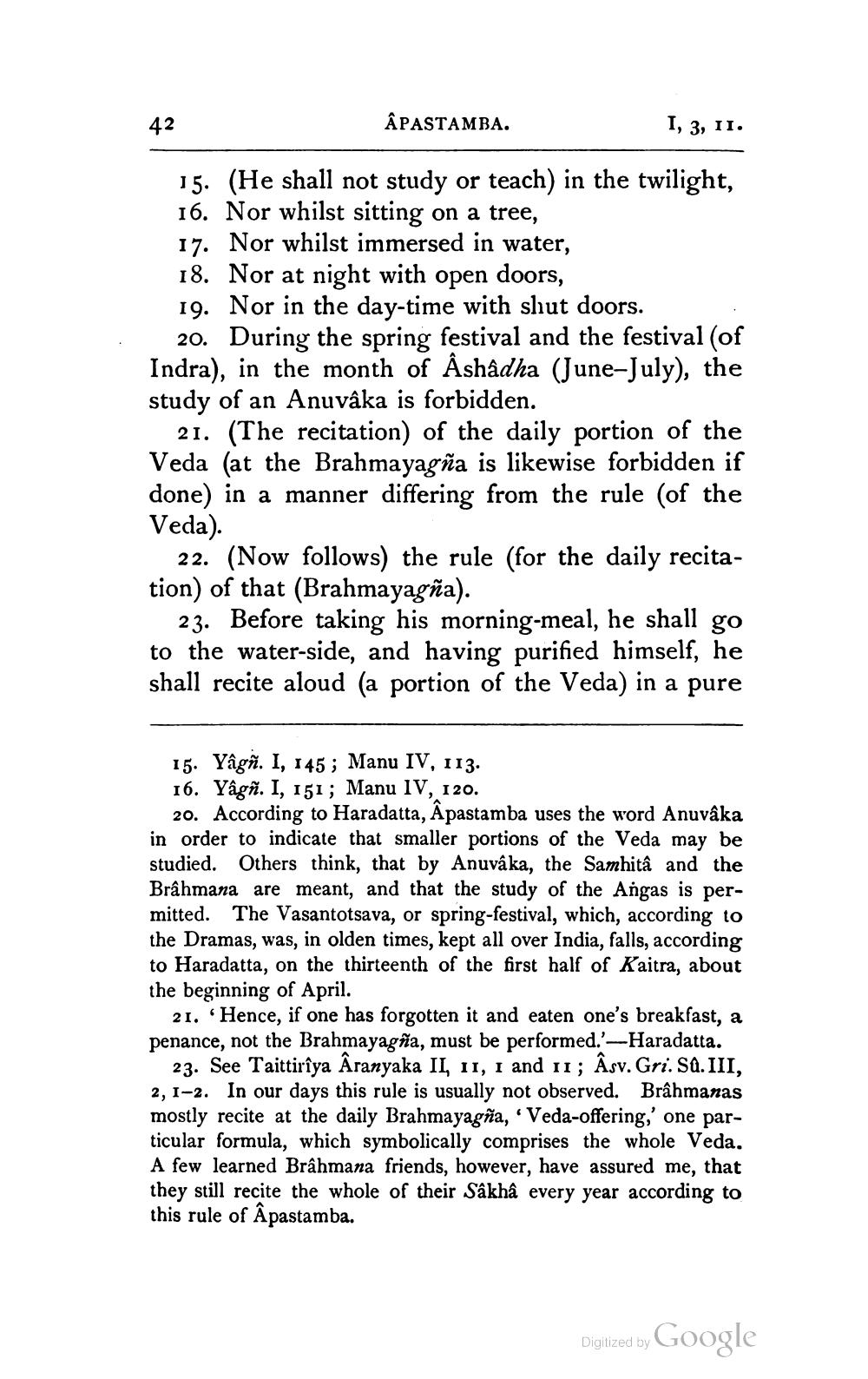________________
42
ÂPASTAMBA.
1, 3, 11.
15. (He shall not study or teach) in the twilight, 16. Nor whilst sitting on a tree, 17. Nor whilst immersed in water, 18. Nor at night with open doors, 19. Nor in the day-time with shut doors.
20. During the spring festival and the festival (of Indra), in the month of Ashâdha (June-July), the study of an Anuvâka is forbidden.
21. (The recitation) of the daily portion of the Veda (at the Brahmayagña is likewise forbidden if done) in a manner differing from the rule (of the Veda).
22. (Now follows) the rule (for the daily recitation) of that (Brahmayagña).
23. Before taking his morning-meal, he shall go to the water-side, and having purified himself, he shall recite aloud (a portion of the Veda) in a pure
15. Yâgñ. I, 145; Manu IV, 113. 16. Yâgñ. I, 151; Manu IV, 120.
20. According to Haradatta, Âpastamba uses the word Anuvâka in order to indicate that smaller portions of the Veda may be studied. Others think, that by Anuvâka, the Samhitâ and the Brâhmana are meant, and that the study of the Angas is permitted. The Vasantotsava, or spring-festival, which, according to the Dramas, was, in olden times, kept all over India, falls, according to Haradatta, on the thirteenth of the first half of Kaitra, about the beginning of April.
21. Hence, if one has forgotten it and eaten one's breakfast, a penance, not the Brahmayagña, must be performed.'-Haradatta.
23. See Taittirîya Aranyaka II, 11, 1 and 11; Âsv. Gri. SQ. III, 2, 1-2. In our days this rule is usually not observed. Brâhmanas mostly recite at the daily Brahmayagña, Veda-offering,' one particular formula, which symbolically comprises the whole Veda. A few learned Brahmana friends, however, have assured me, that they still recite the whole of their Sâkhâ every year according to this rule of Apastamba.
Digitized by Google




